Implantation
Our 72-year-old male patient approached us with a request to get rid of his old removable potting and make a fixed prosthesis for him. 2 weeks after the prosthesis was done, he happily indicated that he could order his favorite food again in the restaurant: steak!
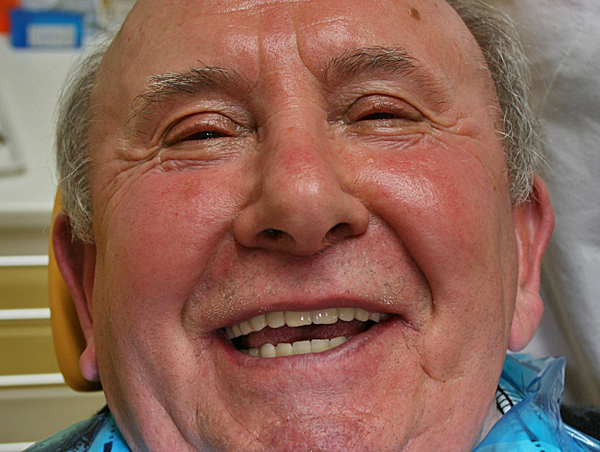
Az implantáció végeredménye
Hagyományos implantációs módszerel készült, ragasztással rögzített fémkerámia híd.
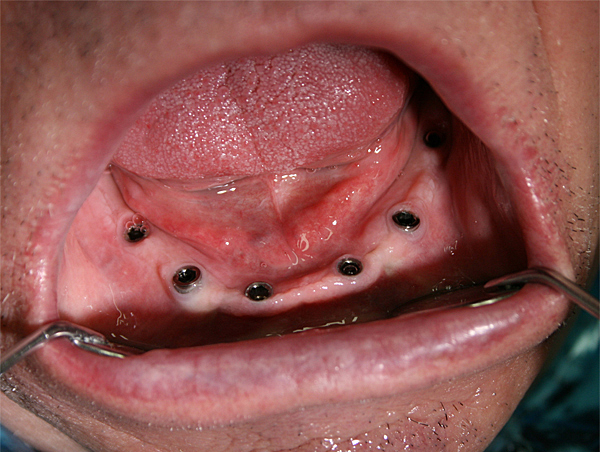
Az alsó fogívbe beültetett implantátumok a fogbehelyezés előtt
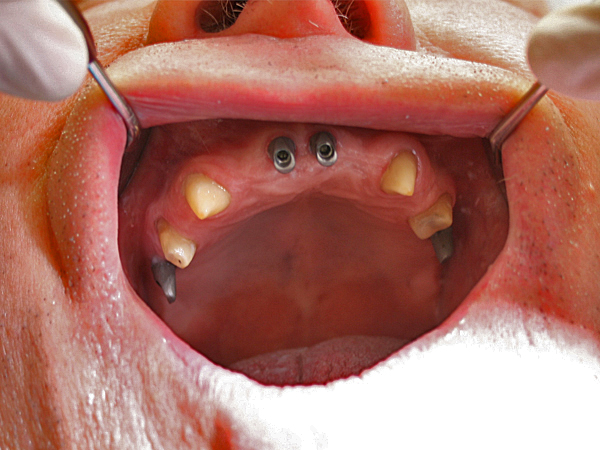
A felső állcsontba beültetett implantátumok a fogbehelyezés előtt
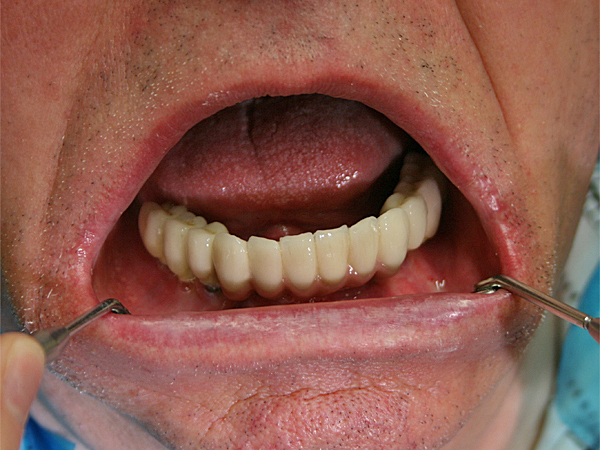
Behelyezett fémkerámia híd
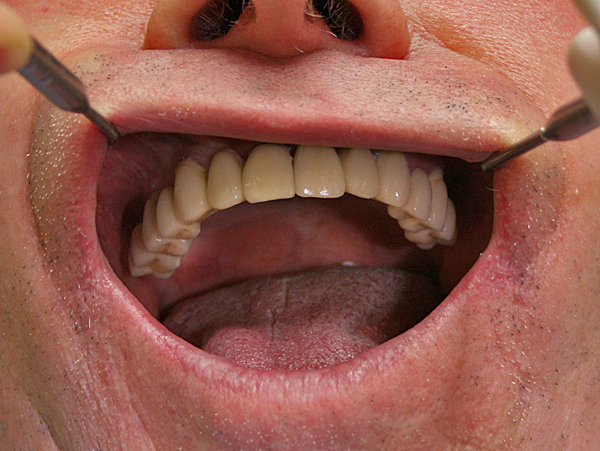
A felső fémkerámia híd.
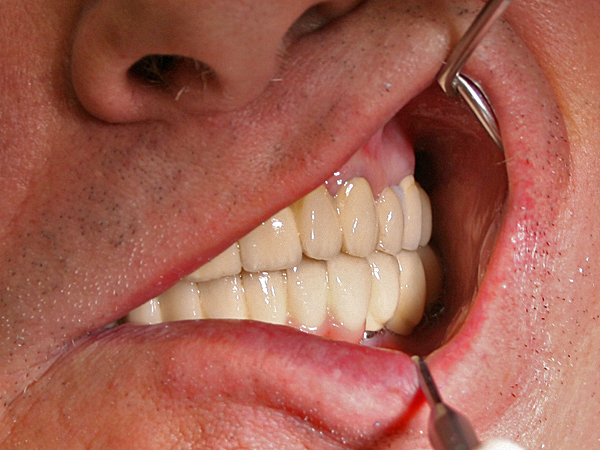
A visszanyert rágófunkció az implantátum beülrtetés után
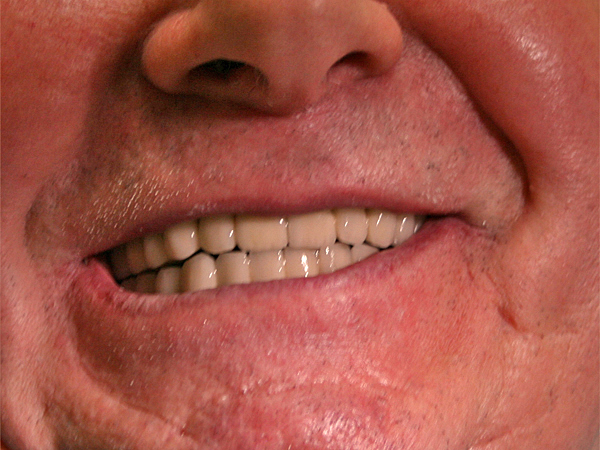
Új, beültetett fogsor
Back to the gallery: Photos about treatments




